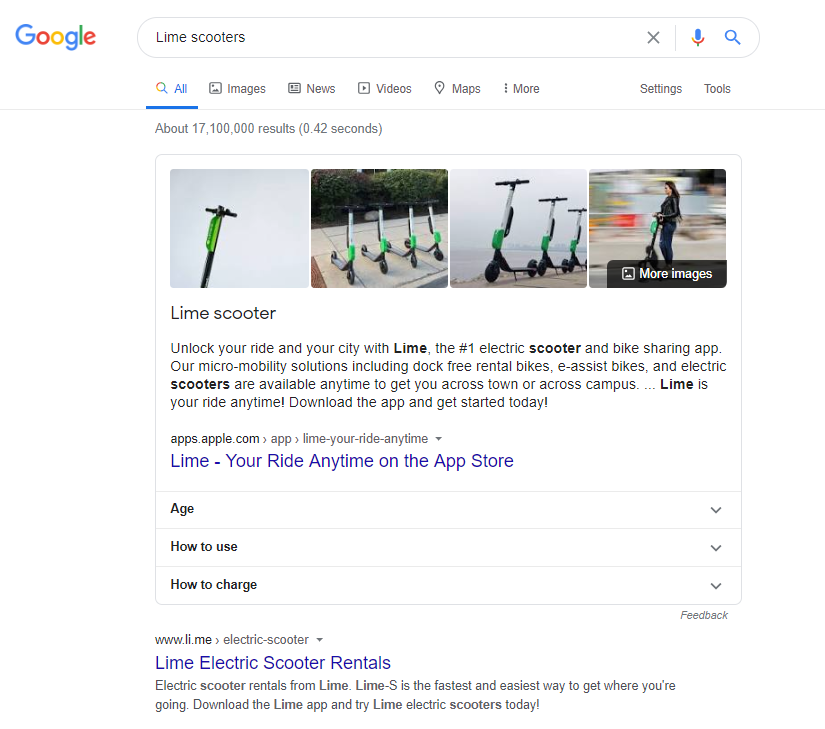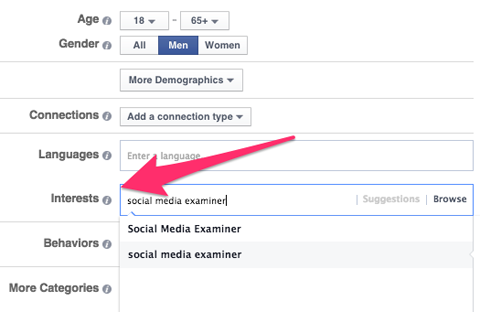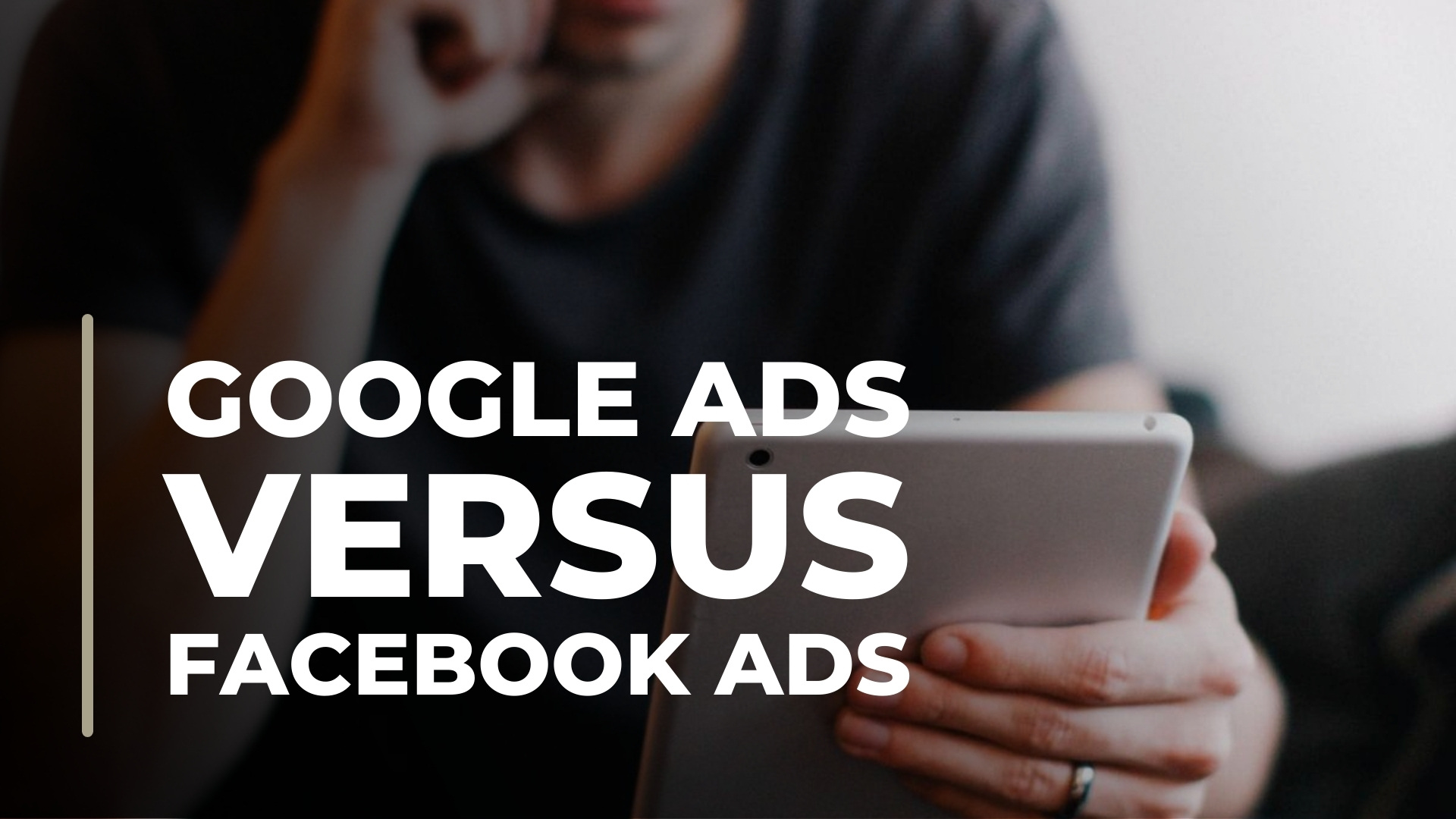Google Ads vs Facebook Ads: Which is better for your business?
Deciding how to allocate precious media advertising dollars can be a daunting task for some. Here we will discuss what you should be looking at in order to make the best decision for your business when it comes to using Google Ads vs Facebook ads.
If you’ve been considering what service is best for you for increasing your presence with paid media advertising, you are not alone.
It’s a common concern for businesses: Where should I spend my advertising dollars? Facebook ads or Google Ads?
Another way to phrase this question: When it comes to Google Ads vs Facebook ads, is there a better option?
We’ve come to find that there isn’t a “better” option when it comes to these two choices. Both of these platforms are good, but for somewhat different strategies.
Here are some questions that will get to the bottom of the dilemma:
- Which option is a better fit for my product’s or business’s target audience?
- Which platform fits my budget best?
- When it comes to the stages of the buyer journey, which part am I targeting?
Google Ads and Facebook ads are popular discussion topics when it comes to the best way to spend your advertising dollars. But what is it about these two choices that makes them so popular?
To put it simply, these two platforms are used by the majority of internet users, and both perform above other competitors. So when choosing to go with one advertising platform over the other, and specifically, their ads platform, which one is best for you? The real answer is – it depends on what you’re trying to promote.
Acquisition Costs & Advertising Budgets for Ad Platforms
Before you jump in and start throwing your hard-earned money on one of these platforms, you should have a clear understanding of your ad spend budget. This means understanding what you can afford to pay to gain customers. Without this, you may spend a lot of money on ANY platform, without reaping the full benefits.
Let’s say you decide that you can budget $30 to gain a new customer, but you are spending $15 just to get a user to visit your website. That means that 50% of your visits must result in a sale just to break even. That’s some scary math.
First you’ll want to analyze your entire budget, and prioritize your intentions. You’ll want to make sure your retargeting is set to your highest priority, then any leftover funds can be moved higher into the funnel. This will ensure that you’re getting the best return possible, allowing you to reinvest further back in the customer journey.
Pay Per Click Advertising For Your Industry
If you’re considering using Google Ads, the first step is to think about your business’ industry. You can use Google Keyword Planner to get a better idea of your costs.

Certain industries are very expensive from a CPC (cost-per-click) advertising perspective. As an example, law-related keywords are generally some of the most expensive. If your business or service falls into this category, and your budget is not large, you may need to reconsider your approach.
For example, if you have a budget of $400/day, but your average CPC is $100, you can only afford 4 clicks per day. As a rule, you’ll want to have a minimum of a few hundred impressions to narrow down what keywords, ads, and landing pages are working best for you. At 4 clicks per day, it may take several months to get enough data to make informed decisions about your campaign.
If this scenario sounds like what your business is facing, you may want to look at Facebook ads as a better option in terms of affordability. It should be noted that Facebook ads offer some excellent targeting capabilities for many industries.
An alternative to consider if you still want to use Google Ads in this scenario, is to use the RLSA feature, which will only show your ads to users who have already been to your site. This isn’t an option for every industry, but if you are able to take advantage of this feature, this will allow your ad to be viewed by your most promising prospects when they search.
What is your Objective?
After deciding your budget, and considering your industry and competitors, you’ll want to have a clear objective set. This is what you are hoping to achieve through your advertising. If your initial goal is increasing brand or product awareness to your target audience, Facebook ads are likely the right choice for you.
If your goal is to get your product or service in front of someone who is actively looking for it however, then Google Ads might be a better fit. In the latter scenario, a user will be searching for what your brand is selling. Thus you will be targeting users whose intention is to make a purchase.
This brings us back around to once again considering your overall spending. In many cases you will find a lower cost per conversion from Facebook ads. It is essential to measure quality to see what the entire cost is for a solid lead. Perhaps it is twice the cost per click on Google Ads, but are you seeing conversions at a higher rate?
It’s important to calculate factors of the entire process that lead to your ultimate objective and determine the best path for your business.
Where is the User in the Buyer’s Journey?
This is a key element to understanding which advertising platform is best for you. In some instances, you will find that both platforms are good fits, but perhaps at different times.
If you want to get the attention of users who are actively looking to purchase a product or service that your business provides, Google Ads will be the most successful. This is because the user is already showing intent to purchase.
However, if you want to bring more awareness to your brand, or influence the buyer’s consideration, then Facebook ads may be right for you. This can help you target users who, actively seeking or not, have need for your product or service.
In this way, there is no clear winner in the Google Ads vs Facebook ads comparison, as both can enhance the growth of your digital marketing strategy.
Search Results and Product/Service Maturity
Many businesses do not take this into consideration as well as they should. If your business is offering a new or unusual product or service, there will be little to no search volume. In this case, a paid search such as Google Ads will not be right for you.
For example, think about Lime scooters. A few years ago, no one was offering scooters for rent, so no one searched for it.

While they filled a need in cities around the country, it wasn’t a subject that users actively searched for. They used Uber, or taxis, or a public transportation service if their city has one.
However, before you rule out Google Ads in this scenario, think about the needs your product fulfills. There may be keywords that describe what a users’ need is, and how your product or service solves that problem.
These keywords can address the pain point your potential customer is experiencing. It also positions your ad to be viewed by people who don’t know your game-changing brand exists.
But that might not be the best use for your budget initially. If your business offers something new that addresses issues that were overlooked before, Facebook ads is a great place to start. You can use Facebook ads to target users by interests and demographics, thereby introducing your brand to your target audience.
Targeting Options for Demographic Based Product or Service
If your product or service directly caters to a specific life event, Facebook ads is a great option for you. Facebook has outstanding capabilities when it comes to targeting users in these niche markets.
While Google Ads also allows you to target specific life events, this only affects people who are searching for terms related to that event. If your product or service isn’t something that is often searched, Google Ads may not be beneficial to you.
Facebook ads however, use demographics as the primary targeting mechanism. This allows you to expand your reach to far more users who are experiencing these life situations. You can use Facebook Lookalike audiences to target customers with the same demographics or buyer characteristics as the ones who have already purchased from you.

Search Engine Queries and Brand Recognition
This is not as important as other factors to consider when choosing an advertising platform, but it’s still important.
With a new business, you are more likely to be behind in search queries compared to more well established businesses. This is true even if you’ve put forth the effort of building your brand’s awareness.
It comes down to brand recognition, and brand loyalty. If a user searches for a product or service your company provides, but is also provided by a big name business, they are more likely to choose the latter.
This is why it’s extremely important to consider where your business is in your market. Consider building your brand reputation and recognition through Facebook ads and other social platforms before venturing into Google Ads. This has been done and has led to success for many brands.
Final Thoughts
As you now know, there is no one-size-fits-all approach to using Google Ads vs Facebook ads.
Take a moment, analyze what you can, and consider:
- How much can you pay to get a new customer?
- Is your industry searched for frequently?
- How much will you pay on a CPC basis?
- How would your budget be used in different scenarios?
- Don’t be afraid to test the waters and find the right mix!
